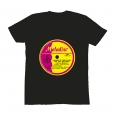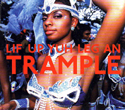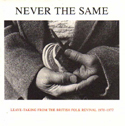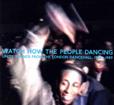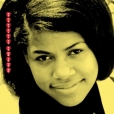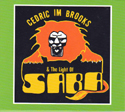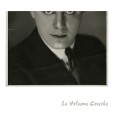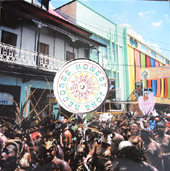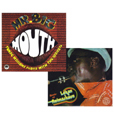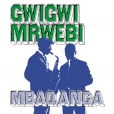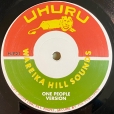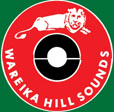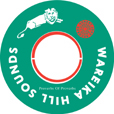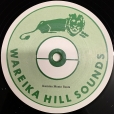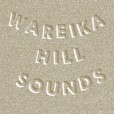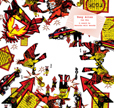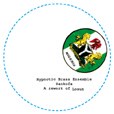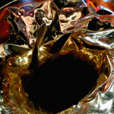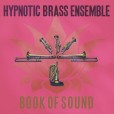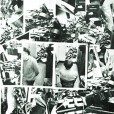Your basket is empty

With loving detail reproducing the label of the original Lord Kitchener 78, in all its finery. Expertly hand-printed in zinging pinkish red and canary yellow (and white and black), on Gildan ‘ultra cotton’ shirts. Bim.
‘a terrific soca compilation… a vital contemporary follow-up to London Is the Place for Me’, Village Voice; ‘*****, Compilation Of The Month’, Touch; ‘chaotic and compelling… an ace selection’, Time Out.
‘***** beautiful, deeply affecting… hard to beat as the year’s most worthwhile reissue’, The Guardian; ‘magnificent… wonderfully austere’, Time Out.
Watch How The People Dancing
Unity Sounds From The London Dancehall 1986 - 1989
Honest Jon's Records
Exhilarating reggae music from Stoke Newington, north east London, made by soundboys on a Casio and a drum machine, in a room over Eddie Regal’s record shop.
‘10/10 Pop music as it should be: beautiful, heartbreaking, but ultimately uplifting’, NME; ‘*****’, Mojo.
Wayne Shuler always recorded Bettye with a black audience in mind, and despite the high proportion of country songs these are definitely soul records, though like nothing else from the time. Bettye never sings with the desolation of O.V. Wright, the hurt of Percy Sledge, or the sheer pain of the final Linda Jones records. There’s a southern feel to these Swann-Shuler recordings, but they also have a light, almost poppy quality to them. Sometimes they sound like the missing link between Muscle Shoals and Motown.
The LP here is a worthy reissue by Music On Vinyl of the classic Honest Jon’s compilation, on its twentieth anniversary; the CD is from back in the day.
‘... compelling and eccentric mix of lopsided funk, freaky jazz and African disco, which gets through more rhythms than some people hear in a lifetime’, Time Out ; ‘***** pure bliss’, Kevin ‘The Bug’ Martin, Muzik.
The first of three 10” comprising Charlotte Courbe’s third album; her compelling return to Honest Jon’s after two decades, laced with surprise and subversiveness, and a refreshing, unique candour.
After a cancer diagnosis last year, Charlotte felt the urge to produce and release new music. “It became like a vital thing.”
MRI Song and Planet Ping Pong were recorded during chemotherapy. Mind Contorted is a duet with Terry Hall, also featuring Terry’s son Theodore and Noel Gallagher on guitars, in a cover of Daniel Johnston. The song Fourteen Years is the oldest inclusion, announcing a fresh, freer direction.
The sleeve exclusively presents new work by John Stezaker, in the first of a triptych.
“I put out the first Le Volume Courbe single in 2001… she reminded me of a female Syd Barrett… real psychedelic soul” (Alan McGee).
“Inspiring originality, fiercely independent, beautiful music, always years ahead of its time. I remember hearing Charlotte’s music for the first time and being immediately taken by the freshness, great melodies and utterly unique approach” (Kevin Shields).
Tearaway soca from the studio of Darryl Braxton, mixing it up with ragga and rave vibes.
With the Loose Lips MC in full flow, and complete with a Spinna house version. On percussion, Miguel Fuentes brings classic Philly vibes courtesy of the MFSB family.
West London broken beat meets JA dancehall. A Co-op classic by this Bugz mainstay.
Tunde Williams / Lekan Animashaun
Mr. Big Mouth / Low Profile (Not For The Blacks)
Honest Jon's Records
Essential Afrika 70 recordings, produced by Fela Kuti.
Beautiful, insurgent, fabulously danceable jazz music from South Africa, flowing out of the penny-whistle kwela bands of the 1950s. (Kwela means ‘get moving’, in Xhosa.)
Bra Gwigwi played alto and clarinet alongside Hugh Masekela and Kippie Moeketsi in The Jazz Dazzlers; also in The Jazz Maniacs and The Harlem Swingsters. He came to the UK from Johannesburg as an actor and clarinettist in King Kong — a musical about a Zulu boxer — which opened in London in February 1961.
Recording in January 1967, at Dennis Duerden’s Transcription Centre, he is joined here by Dudu Pukwana, Chris McGregor, Laurie Allan, and Ronnie Beer, all from The Blue Notes. Ladbroke Grove legend, and mainstay of our London Is The Place For Me series, Coleridge Goode plays double bass.
No less than sixteen shots of jubilant, jump-up mbaqanga. Check the Ethiopian vibe of Mra (which became core repertoire of The Brotherhood of Breath). Listen to Nyusamkhaya, and try to get it out of your head. Impossible.
Lovely notes by Steve Beresford, too.
‘The South African folk music that makes people glad to be alive!’
Full, bone-heavy horns, swirling organ and rocking nyabinghi drumming; and with a storming dub.
An exclusive mix, featuring the original Light Of Saba drummers; with two new instrumentals, one in a more laid-back grounation style, the other blood-and-fire; and a chant, upful and defiant.
From this veteran of the Count Ossie group and The Light Of Saba — ‘These are my recordings from the last couple of years, blazing grounation roots reggae.’
An unexpectedly upful, shuffling, percussive rug-cutter, with the Light Of Saba veteran bringing a little go-go to the grounation, and a deft, lovely dub mixed by Moritz von Oswald.
Headlong, fierce, banked rasta drumming fit to discombobulate any kind of system, with sweet, jazzy trombone riding it down, bubbling bass driving it home, and all of it classically dubwise.
Wareika Hill Sounds is the contemporary roots reggae project of Calvin Cameron — mainstay of the original Light Of Saba line-up, the genius behind Lambs Bread Collie — who to this day lives above the headquarters of the Mystic Revelation Of Rastafari, in the Wareika Hill district of Kingston, Jamaica.
In the great pedagogical traditions of the multi-cultural Light Of Saba, and before that Count Ossie, this new recording runs together two JA musical traditions — a kind of drumming (and drum) brought from the Congo, and the island’s variation of calypso — into a thundering grounation charge. As always, the Skatalite’s trombone-playing is majestic: deadly, gripping, deeply cultivated.
The dub is tremendous, too.
‘From the college where you get your musical knowledge, shower on the hour every hour’ — as I-Roy would say, in a Leninist style and fashion — ‘Knowledge Is Power.’
In the great tradition of his time with Count Ossie, four new grounation furies — hypnotic, thunderous, urgent, mystical — with dubwise repeta, funde and bass drums embedding the Light Of Saba veteran’s gorgeous trombone classicism.
The opener is a rocking kumina rhythm, with ring-the-alarm metal percussion and exhortatory brass; Free The People swirls some apocalyptic reasoning into the foggy, thumping mix. Universe In Crisis is another emergency call, chuffing headlong down the grooves… before the beautiful, anthemic Chant takes a step back from the fire, closing with a sense of thankful, spiritual reconciliation, the expert drumming and lyrical bone-work in full effect.
Two no-flim-flam, cross-border, dub-wise stompers — paired with masterful versions — from the veteran, Kingston-based unit led by the trombonist of Count Ossie’s Mystic Revelation Of Rastafari and The Light Of Saba.
Like a dream, but authoritatively, this remix from Jamaica magnificently crosses the Afrobeat of Fela Kuti with the grounation reggae tradition of Count Ossie.
Tear-up bad-boy brass-band scorchers. Just like dad crossed Sun Ra with Kool And The Gang, this crashes funkdafied New Orleans street jazz into hip hop. With Flea, Damon, Tony Allen, Malcolm from The Heliocentrics.
“We started with a cosmic idea that we were taught from a very young age – that the stars and planets make a sound, that deep in outer space there is audible harmony.”
Book Of Sound is the brilliant, richly resonant exploration of these interstellar low ways. By turns urgent and contemplative, funky and reflective; varied in its textures, but entirely of one piece. Underpinned by cosmology, held in place by meditation, swirling with notions of history, science, theology, ancestry — this is a heady conceptual brew. But the music speaks loudest: ‘the sound of surprise’, magnificently retrieving Spiritual Jazz from the knacker’s yard.
It’s a deeply Chicagoan record. “It’s got the vibe of the lake,’ continues trombonist Cid, “the vibe of the prairies opening up to the west.” Also the Sun Ra albums recorded there in the 1950s, and — of course, being the dad of all seven ensemblists — Phil Cohran’s wonderful albums from the 1960s.
“You know, it’s tough trying to satisfy everybody with our music. It’s hard enough satisfying ourselves, let alone the jazz scene, the hip hop guys, what have you. With this album we just dropped all that as a consideration, and tuned into deeper principles.”
Recorded in 1971, Solo Guitar Volume 1 was Bailey’s first solo album. Its cover is an iconic montage of photos taken in the guitar shop where he worked. He and the photographer piled up the instruments whilst the proprietor was at lunch, with Bailey promptly sacked on his return.
The LP was issued in two versions over the years — Incus 2 and 2R — with different groupings of free improvisations paired with Bailey’s performances of notated pieces by his friends Misha Mengelberg, Gavin Bryars and Willem Breuker.
All this music is here, plus a superb solo performance at York University in 1972; a welcome shock at the end of an evening of notated music. It’s a striking demonstration of the way Bailey rewrote the language of the guitar with endless inventiveness, intelligence and wit.
At last, the vinyl reissue of this masterwork, adding two hitherto unreleased gems recorded solo for Charles Fox’s Radio 3 programme Jazz in Britain, in the same few months of 1980 as the stunning Aida performances.
The phrase ‘in the moment’ is often bandied about with reference to free improvisation, and indeed there’s no better way to describe Derek Bailey’s playing. The acoustic guitar is notoriously lacking in natural reverberation — notes barely hang in the air for a couple of seconds before they disappear — which explains the almost non-stop flow of new material in these stellar performances. Bailey knew from one split-second to the next exactly where to find the same pitch on different strings, either as a stopped tone or a ringing harmonic, and there’s never a note out of place. ‘He who kisses the joy as it flies,’ in the words of William Blake, ‘Lives in eternity’s sunrise’ — and this music is forever in the moment, constantly active but never gabby, kissing the joy.
One of the special pleasures of the BBC set is the guitarist’s own laconic commentary, a deliciously deadpan description of what he’s doing while he’s doing it — “I like to think of it… as a kind of music” — and the interaction between words and music is a particular delight. “You may have noticed a certain lack of variety,” he quips, while unleashing a furiously complex volley. Is it a coincidence that the final seconds recall the famous cycling fifths of the coda to Thelonious Monk’s Round Midnight? Surely not — for Bailey, like Monk, was a note man par excellence. And they’re both still alive and well in eternity’s sunrise.
